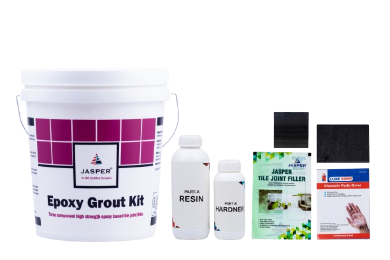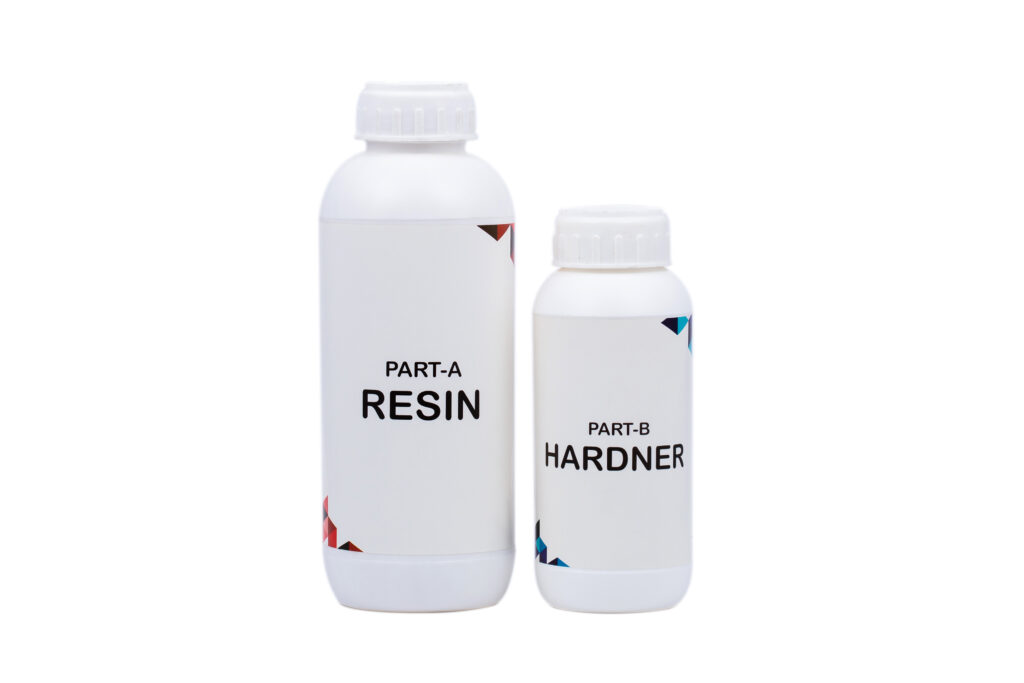+91-8043892212
Why Epoxy Grout for Tiles is the Best Choice for Long-Lasting, Bathroom and Kitchen Spaces
When it comes to choosing grout for high-moisture areas like bathrooms and kitchens, epoxy grout for tiles is a top contender. Unlike traditional grout, epoxy grout is exceptionally durable, waterproof, and resistant to stains and mold. In spaces that see daily wear and tear, like showers and kitchen backsplashes, epoxy grout offers a lasting solution that keeps tiles looking fresh and clean with minimal maintenance. Here’s why epoxy grout has become the go-to choice for homeowners and renovators aiming for both style and functionality in their spaces.
What Makes Epoxy Grout for Tiles Stand Out?
Epoxy grout differs from regular grout in its composition. Made from a mix of epoxy resins and fillers, this grout is tougher, more flexible, and resists common issues like cracking, staining, and discoloration. This composition is what makes epoxy grout so well-suited for high-moisture areas like bathrooms and kitchens, where water-resistant grout is essential. Here’s a closer look at why this type of grout shines in tile installations.
Benefits of Using Epoxy Grout in Bathrooms and Kitchens

1. Water Resistance
Traditional cement-based grout absorbs water, which can lead to stains and mold growth, especially in wet areas like showers and around sinks. The waterproof and non-porous nature of epoxy grout for tiles keeps it clean and stops mold from growing.
2. Mold and Mildew Resistance
Because epoxy grout doesn’t absorb water, it also prevents mold and mildew from forming—a common problem in bathrooms. This makes it the best epoxy grout for shower tiles and other high-humidity areas.
3. Stain-Proof Surface
Kitchens are prone to spills, especially on backsplashes. With epoxy grout for kitchen tiles, you won’t have to worry about coffee, wine, or oil stains. Its stain-proof nature means your grout stays bright and clean, no matter what.
4. Durability and Long Life
Epoxy grout for tiles is far more durable than cement grout. It’s highly resistant to cracks and wear, making it ideal for high-traffic areas like kitchen floors and bathroom walls. If you’re looking for long-lasting grout solutions for wet spaces, epoxy is the way to go.
Epoxy Grout vs. Traditional Grout: Is It Worth the Upgrade?
While epoxy grout for tiles may come with a higher price tag initially, it can save money in the long run by reducing maintenance and replacement costs. Cement grout may require resealing and frequent cleaning to keep it looking new. On the other hand, epoxy grout for tiles remains vibrant and requires minimal upkeep. For a busy household, this means fewer worries about grout discoloration and cracking.
Key Considerations When Using Epoxy Grout for Tiles

- Installation Epoxy grout for tiles can be more challenging to work with than regular grout. It sets quickly and requires careful application. It’s recommended to hire a professional for larger jobs to ensure the best results.
- Room Treatment Ensure that your grouting area is well-prepared. In a bathroom, for example, good ventilation will help the grout cure properly. With proper room treatment, even a $50 mic in a treated room (in the case of audio recording) analogy applies here—better preparation leads to superior results!
- Correct Tooling Be mindful of using the right tools to avoid uneven surfaces or air bubbles. For those unfamiliar with DIY installation, consulting with a contractor or a tile specialist is beneficial.
How to Maintain Epoxy Grout for Long-Lasting Results
Even though epoxy grout for tiles doesn’t need much care, you should still clean it regularly. Use a mild cleaner or warm soapy water to wipe down tiles and grout, especially in high-traffic areas like kitchens and showers. Avoid harsh chemicals, which can wear down the surface over time.
Quick Tips:
- Avoid abrasive cleaners: Since epoxy grout is already stain-resistant, mild soap will do the trick.
- Clean up spills promptly: Although it’s stain-proof, removing spills quickly can keep surfaces fresh.
- Use a soft brush: For deeper cleaning, use a soft-bristled brush to avoid scratching the tiles or grout.
Why Epoxy Grout Is the Best Choice for Bathroom and Kitchen Tiles
In summary, epoxy grout for tiles offers superior durability, water resistance, and stain protection, making it ideal for both bathrooms and kitchens. By choosing epoxy grout for tiles, homeowners can enjoy tiles that stay clean, resist mold, and maintain their appearance over time. Whether you’re planning a new tile installation or renovating an existing space, epoxy grout is a wise investment that combines functionality with style.
So, if you want beautiful bathroom and kitchen tiles that last, epoxy grout might just be the game-changer you’re looking for!
Conclusion
In conclusion, epoxy grout for tiles stands out as the ultimate choice for achieving long-lasting and aesthetically pleasing bathroom and kitchen spaces. Its unique composition offers unparalleled water resistance, mold and mildew protection, and stain-proof qualities that surpass traditional grout options. With minimal maintenance and remarkable durability, epoxy grout not only enhances the longevity of your tiles but also ensures they remain vibrant and clean, even in the busiest households.
By investing in epoxy grout, you’re not just choosing a superior product; you’re making a long-term commitment to style, functionality, and ease of maintenance. So, when planning your next tile project or renovation, consider epoxy grout as the game-changer that will transform your spaces into beautiful, enduring areas that you and your family can enjoy for years to come.
FAQs
1. Is epoxy grout a good choice for bathroom and kitchen tiles?
Yes, epoxy grout is an excellent option for both bathroom and kitchen tiles. Its water-resistant properties make it perfect for high-moisture areas, and it’s highly resistant to stains, mold, and mildew, ensuring longevity and cleanliness in wet environments.
2. How does epoxy grout compare to cement grout?
Epoxy grout is generally superior to cement grout in terms of durability and maintenance. While it can be more expensive and requires a bit more skill to install, its non-porous nature means it doesn’t need sealing and is easier to clean, making it ideal for kitchens and bathrooms.
3. Do I need to seal epoxy grout?
No, epoxy grout does not require sealing. Unlike cement grout, it is non-porous and inherently waterproof, which means it won’t absorb moisture and is easier to maintain over time.
4. What are the cleaning and maintenance requirements for epoxy grout?
Cleaning epoxy grout is simple; mild soap and water are usually sufficient. For tougher stains, a non-abrasive cleaner can be used. Regular cleaning will keep it looking fresh, but avoid harsh chemicals or abrasive tools to prevent damage.
5. How long does epoxy grout last, and can it crack over time?
Epoxy grout can last 15-20 years or more with proper care, thanks to its durability and resistance to moisture and stains. It is less likely to crack compared to cement grout due to its flexibility, which allows it to withstand minor movements.
